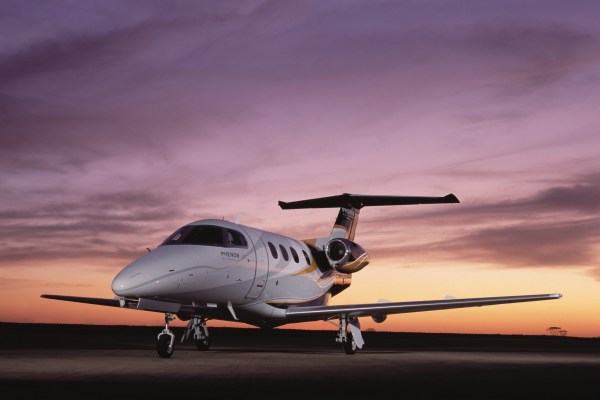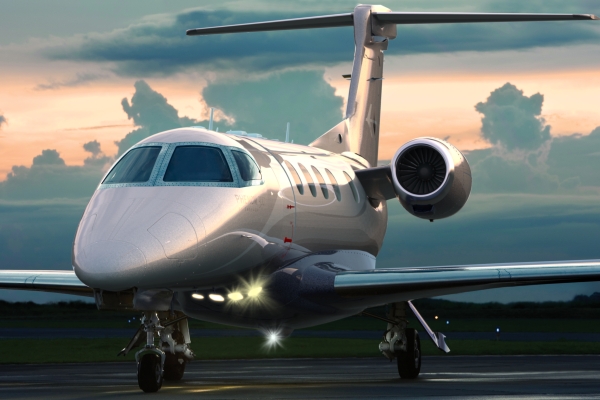Avantto: Aircraft Management and Fractional Ownership in Brazil
Rogério Andrade gives an overview of the aircraft management and fractional ownership sectors in Brazil and presents Avantto, mentioning the company’s philosophy, some of its challenges and his vision for the future. Avantto was founded in 2011 and today it manages over 53 aircraft, both helicopters and jets, in fractional and single management.
Interview with Rogério Andrade, President of Avantto
Can you give us your overview of the aircraft management and fractional ownership sectors in Brazil?
These two sectors to do with executive aviation are quite new here. We are the only ones working with this type of service here in Brazil. If you go abroad you will see that these kinds of services are very common in the US and in Europe. There are over 1000 jets under fractional ownership/management programs. The biggest company is called NetJets and is owned by Berkshire Hathaway. They were the first player to establish this sector and they are still the biggest player on the market. NetJets alone manages over 800 aircraft and they were the inspiration for setting up Avantto.
Last year we were certified by IS-BAO, which is like the ISO certifications but for aviation operations. It is done by an independent organisation who comes and audits our company to make sure that we have the best practices in terms of safety in our operations, aircraft maintenance, crew hiring, etc. We have this certification which means that we are one of the best companies in this industry in terms of safety.
Are you the only player here in Brazil?
Yes, correct. We are the pioneers in this venture.
Can you tell us a bit about your company?
Avantto was founded in 2011. It was a partnership between myself and Rio Bravo, an asset manager in Brazil who manages over 10,000 billion reals. Rio Bravo has several funds and one of which is investing in Avantto. Today, we manage over 53 aircraft, both helicopters and jets and we run both fractional and single management. I love to talk about our mission because I think it sums up what we offer to the market and our customers: “the joy of flying your own aircraft with safety, punctuality, 100% availability, free of worries and for a fraction of the cost”.
Can you explain a bit more about aircraft management and fractional ownership?
Fractional aircraft management is where we divide the aircraft into many shares and we sell those shares either to a single individual or to a corporation so that a shareholder only has to invest a fraction of the money it would cost them to buy a whole aircraft. All of the fixed costs are divided between the shareholders and we manage all of the logistics, hiring of the crew and maintenance. Moreover we make sure that every time the customer asks for the aircraft, that aircraft or any other aircraft similar to the one that they hold shares for will be available to fly. That is the excellent thing about fractional ownership.

In terms of aircraft management once an enterprise or an individual has purchased an aircraft we can manage that aircraft for them in order to provide a better service relating to safety, maintenance management, aeronautical bureaucracy, and all other aspects that are related to the operation of an aircraft.
Our client base varies from high networking individuals to multinational corporations and in between we also have clients who are lawyers, consultants, businessmen, companies who are trading in the stock markets, etc. Basically anyone who needs transportation within the city or between cities is a prospective customer for Avantto.
You are based in Sao Paulo, right?
Yes but we also run operations in Rio de Janeiro.
Do you have plans to expand within Brazil or abroad?
Yes we definitely would like to expand within Brazil. Right now we are studying the possibility of opening an operational base in the north east of Brazil and another base in the south. We are also looking very carefully at the centre of Brazil. These are the new places where aviation is developing. The financial market is mostly in Rio and Sao Paulo but businesses are developing outside of this area which means businessmen are travelling every day to many places and they don’t really have a commercial airline that will get them there. Brazil has over 5000 cities but no more than 100 of them are serviced by commercial airlines. The network of cities that are served commercially is very small and if you don’t find yourself in Rio, Sao Paulo or Brasilia which are the main hubs, you have to make connections to get where you need to be and many times you will have to do the last leg of the journey by car because of the lack of air transportation. That is why people are increasingly travelling by private jets. In the cities, the streets are really crowded with cars so getting from one place to another is increasingly more difficult and that is why we use helicopters and why I think our service is going to expand outside of Rio and Sao Paulo.

Can you tell us a bit about the philosophy of the company?
The most important thing for us is safety; in aviation safety is everything. You can´t count on second chances with aviation because they don’t really exist. You need to make sure that everything is done as it should be, so that you don’t have any problems. There is never just one reason behind an air accident; it is a sum of bad things that end up in an accident. That is why teamwork in aviation is also incredibly important and is another pillar of our philosophy. The final pillar of our company philosophy is quality of service, we believe it should be above and beyond the customer´s expectations.
Last year we were certified by IS-BAO, which is like the ISO certifications but for aviation operations. It is done by an independent organisation who comes and audits our company to make sure that we have the best practices in terms of safety in our operations, aircraft maintenance, crew hiring, etc. We have this certification which means that we are one of the best companies in this industry in terms of safety.
What would you say are your main challenges?
We don’t have any direct competition but the other companies that are players in the aviation industry in some ways do compete against us. Let me explain: on one hand you have the charter companies that charter flights for individuals or enterprises that are willing to fly not so often. On the other hand you have the manufacturers or their representatives in the country that fly the whole aircraft for a potential customer. We lie somewhere in between these two options, for those that need to travel often but don’t want the burden of managing their own aircraft or the cost of purchasing their own aircraft.
I think that our biggest challenge is infrastructure in terms of airports, and also labour in terms of the quality needed to operate aircraft. Essentially we face the same challenges as most companies in Brazil: infrastructure and labour.

What is your assessment of the opportunities for investing in this sector?
I think that particularly the area of fractional ownership offers a lot of opportunities for investment. Once you are established and have a large customer base as we do, for someone else to come and try to compete with the same kind of services requires a lot of money therefore it is often better to partner up with someone who is already established in the sector. The Brazilian aviation industry is big but it is not very mature so there is still a long way to go. It is actually growing much more than the Brazilian GDP for the reasons I mentioned earlier: terrible traffic in the cities and many cities that are not serviced by the main airlines.
Are you open to partnerships or investors for your company?
For sure. The ideal partnership for us at the moment is one that will allow us to grow faster. As we said there are a lot of opportunities here in Brazil and we are not able to fulfil them all at the same time, but if you have more money you can get more done at the same time.
What is your vision for the future of the sector?
We never know just when competition is going to come, but it will at some point. Once you open the market and you make it a reality, followers will always come. When competition does come we will welcome it. We are not able to serve the whole market so having more players in the sector means that it is maturing, growing and developing. The important thing is to stay number 1.
As for your company, what would you like to achieve in 2 years from now?

I would like to be operating outside of Rio and Sao Paulo with established operational bases in the north east, south and centre of Brazil. We are also looking for investments in infrastructure. Right now we are in partnership with a Rio state developer to build a FBO for helicopters in the Sao Paulo area and we are also looking at new airports for the future. There are two projects under development in the Sao Paulo area that we are supporting and we are definitely going to be in one of those two in the near future as well as potentially in some other airports outside of Rio and Sao Paulo.
What would be your message to an international investor who is interested in coming to Brazil to invest in general or in your sector?
There are a lot of opportunities and a lot of things to take care of. Brazilian legislation and particularly aviation regulations are unique to say the least. It is best to work with a local partner because otherwise the maturity time of your company will be greatly increased.
FAIR USE POLICY
This material (including media content) may not be published, broadcasted, rewritten, or redistributed. However, linking directly to the page (including the source, i.e. Marcopolis.net) is permitted and encouraged.